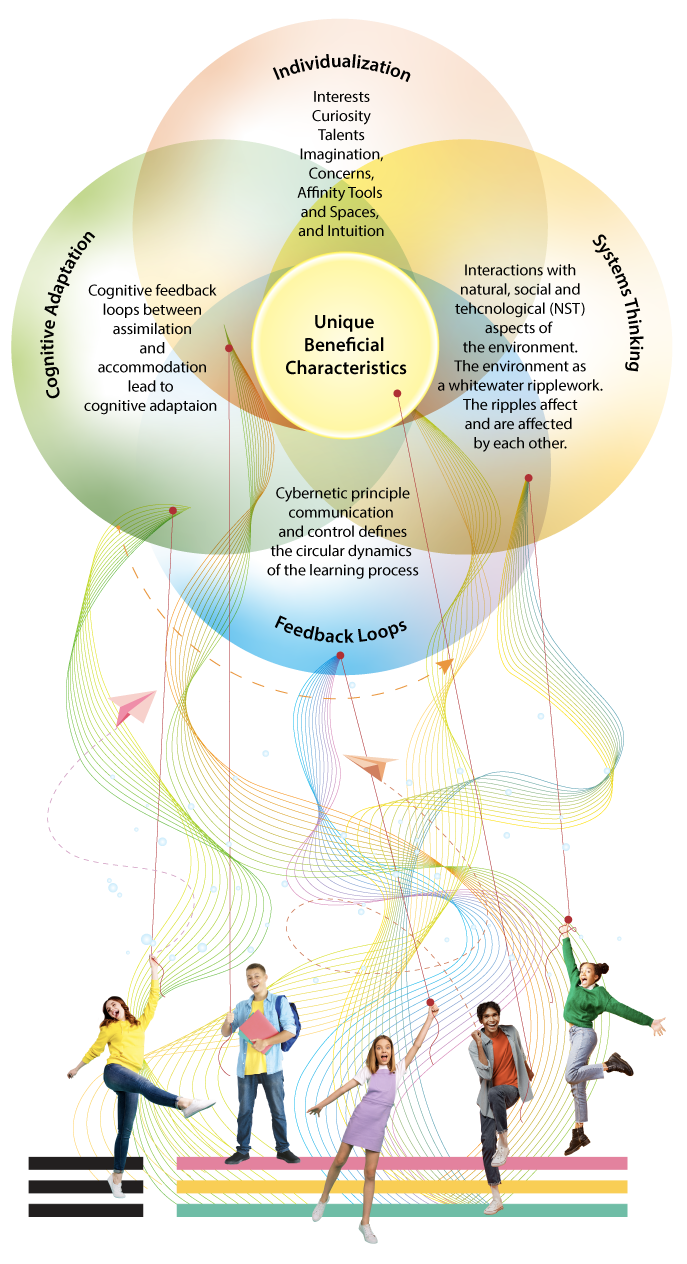Theoretical Framework
Ripples@Work is a synthesis of a few theoretical concepts closely related to each other. These concepts are drawn from: Charles Darwin’s theory of natural selection; Jean Piaget’s theory of cognitive development; individualization; interdisciplinary study of systems; and Norbert Wiener’s cybernetic principle of feedback loops.
Darwin’s principle of natural selection states: ‘any being, if it varies however slightly in any manner profitable to itself, under the complex and sometimes varying conditions of life, will have a better chance of surviving, and thus be naturally selected.’[1]
From here, R@W borrows the notion that by nature individuals are endowed with unique innate tendencies that have made it possible for them to get to this stage of the evolutionary ladder. These elements were key to their successful adaptation to conditions that Darwin described as similar to ours—which we define as complex, changeable and extremely competitive (3Cs).
In R@W, the discovery and cultivation of such unique beneficial tendencies, and the ability to use them advantageously, are put at the centre of the learning process.
From the theories of individualization, the R@W borrows the psychological tendencies that may characterize the individual as unique. These are: interests, curiosity, talents, imagination, concerns, affinity tools and spaces, and intuition.
R@W takes a holistic approach based on systems thinking. It sees organic learning as occurring when individuals interact with their environment. In R@W, interaction implies engagement with the natural, social, and technological (NST) aspects of the environment. The systems thinking approach in R@W is symbolized by representing the complex, changeable, and extremely competitive (3Cs) NST environment as a whitewater ripplework—a dynamic pattern of rapidly moving ripples, where ripples affect and are affected by each other.
The cybernetic principle of communication and control—feedback loops—defines the circular dynamics of the learning process. You can read more about this important structural rule of R@W learning in the Feedback Loops section.
Jean Piaget’s psychological processes of cognitive adaptation lie at the heart of R@W understanding of the psychology of learning. To read about the concept which plays a pivotal role in the R@W learning model, please go to the Cognitive Adaptation page.
REFERENCES
1. Darwin, Charles (1859). The Origin of Species: 150th Anniversary Edition [Kindle version, 2009, p. 5]. Signet.

